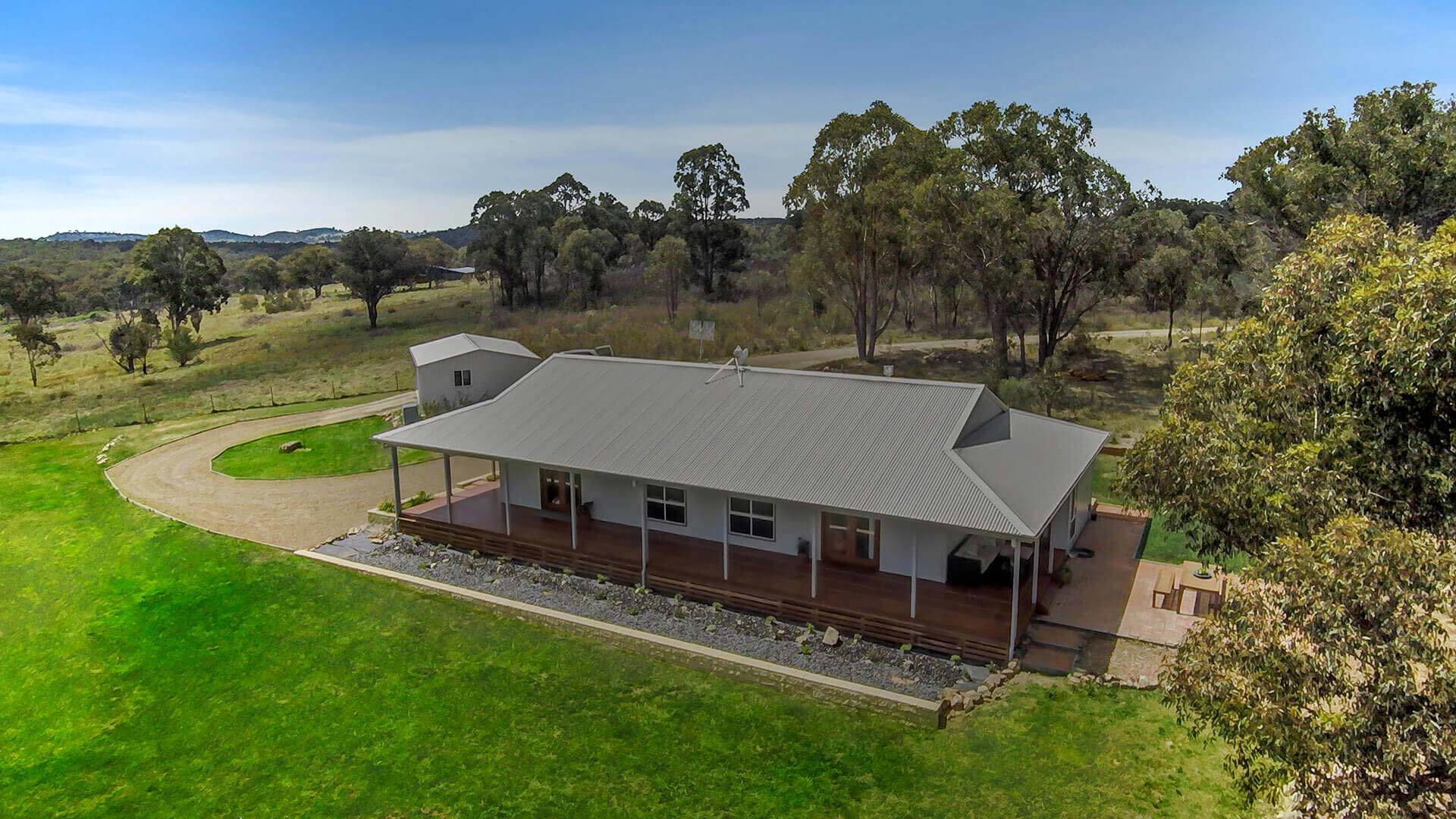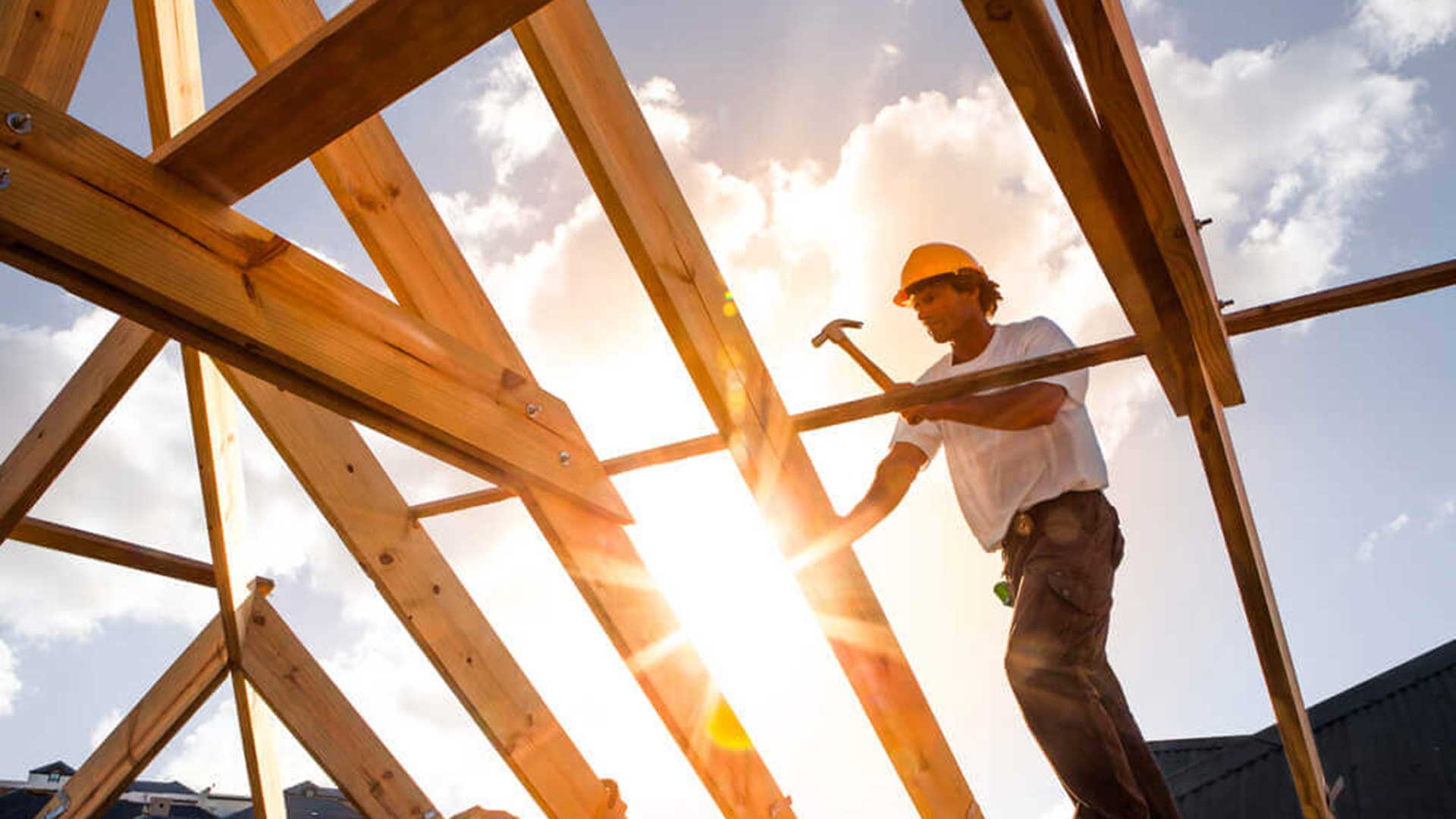Building a house is a great accomplishment. However, the work doesn’t only start when construction begins on site. Rather, a period of careful planning and investigation needs to be undertaken as soon as you decide to build a new home.
This way, owners can be sure that everything from soil components to building covenants will support your dream build, not hinder it. While research and planning may seem laborious, the benefits are telling.
Being informed allows those looking to build a house to take their time and consider key decisions. All of which will aid the decision making process when it comes time to hire a builder or choose the right fittings and fixtures for the house.
Everything to know about building a house
The process of building a home encompasses many different phases. However, the excitement to see the first wall erected on the lot may cause homeowners to race through the process.
However, by breaking down the building process into four steps, you can ensure that every box is being ticked along the way. This is important because seemingly small tasks actually play a large role in making sure that your dream home design turns into a reality.
Step 1: Planning phase
When looking to build a home, the best place to start is by talking about design. Unlike existing homes, home builders will have to choose not only the layout of the home but the positioning of the structure on the lot.
As such, home builders should take time to think about floor plans and layouts. This encompasses everything from the number of bedrooms and bathrooms to the number of windows included on each floor of the home.
From there, it’s important to consider elements of style. As there are many different home design trends to choose from, it’s wise to look at renovation sites or mobile apps to collate ideas and inspiration.
By having a general idea of the style of the home, you can design rooms to fit into this style. Additionally, you can even proportion rooms to include specific furniture pieces that will exude the chosen design style.
When it comes to planning, there are also other important factors to consider. Firstly, hiring the right builder for the job. As the builder will be responsible for turning your dream home into a reality, it’s important to choose the right professional.
However, choosing the right builder can be easier said than done. To ensure the process goes smoothly, make sure to obtain quotes, contact references and view the past work of at least two to three builders. It’s also important to ask to see the relevant qualifications.
While practical considerations are of course paramount, it’s important to match personalities with your builder. If home builders don’t necessarily like their builder, it can make approaching builders for hard conversations about budgets or time frames all the more difficult.
Secondly, it’s important to consider finance during the planning phase. In the majority of cases, home builders will need a construction loan. As such, it’s important to have frank conversations about budget and how much money will need to be borrowed.
In terms of finance, home builders should research all of the options. This is because each state and territory in Australia has their own home building scheme. If you indeed qualify for certain grants or concessions, this could influence the budget exponentially.
Step 2: Pre-construction
During the pre-construction phase, it’s important to ensure that legally binding agreements with builders and designers have been reviewed and signed. This way, each party involved in the build will know their duties.
There are also elements of energy efficiency to consider. Accounting for energy efficiency is equally about certain products and their placement. For example, it’s important to install solar panels. However, to maximise energy efficiency inside, window placement is also crucial.
Pre-construction is also a good time to assess the building site. There are two key considerations involved. Firstly, the quality of the soil. As such, the soil will have to be tested to see if it is compatible with the materials that are going to be used.
Secondly, it’s important to be aware of building covenants. These are essentially restrictions which could dictate the colour that the exterior of the home can be painted. Covenants can also influence the height of the lot and the type of materials used in the build.
Step 3: During construction
During the construction phase, it’s important for home builders to remain as involved as possible. This is because a simple walkthrough of the building site can help shine a light on current issues or even potential problems.
By being available on-site, home builders are there to make decisions with builders. This means that, for example, if the laundry cabinetry is going to take 14 weeks to be delivered, a new and viable option can be discussed and a new plan implemented virtually straight away.
Site visits will also help individuals visualise living in the home. As such, you can consult on where additional power points can be installed in order to ensure functionality in office spaces, living rooms and even the kitchen and bathrooms.
Step 4: Post-construction
When construction work stops, there is still one step left for home builders to complete- the handover. While home builders may have been regularly involved or on-site every day, a handover is crucial.
This is because, during a handover, the designer and builder can walk you through the features of the house, whether they be the rain/stormwater tanks and guttering system or how the remote for the pergola’s roofing system works.
Building your dream home with Kitome
For many people, designing and building a home is a dream come true. However, turning this dream into a reality requires a lot of planning and research. Unfortunately, a fully functioning home can’t be constructed overnight!
To make the most of the process, it’s important to be informed about the different stages of construction. This way, home builders can soundly make key decisions. When it comes time to build your dream home, Kitome can help guide you through the entire home-build process. Contact us today or download our brochure for more information.





